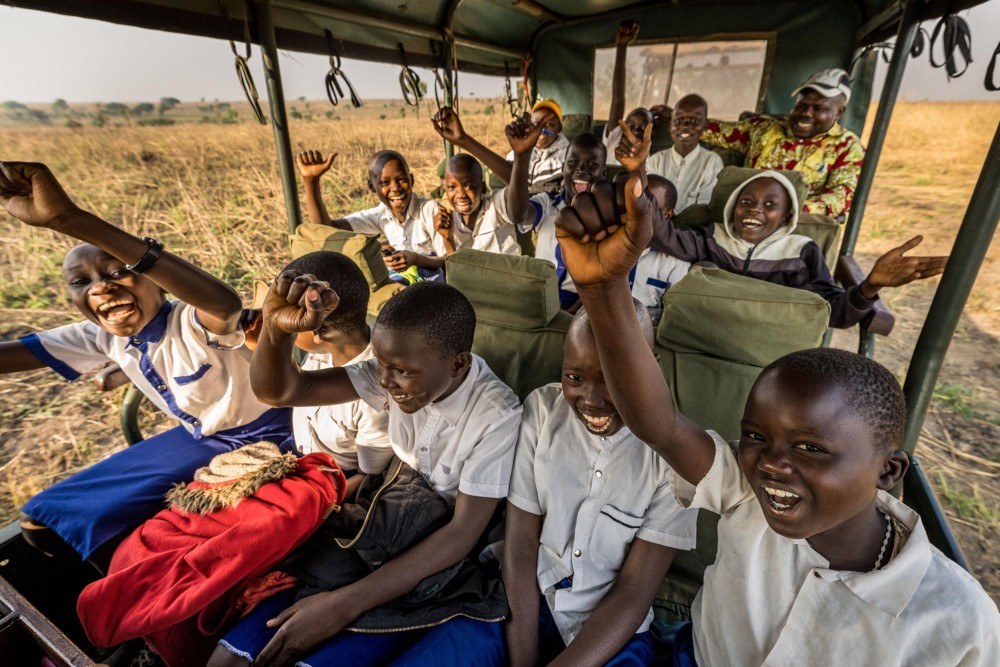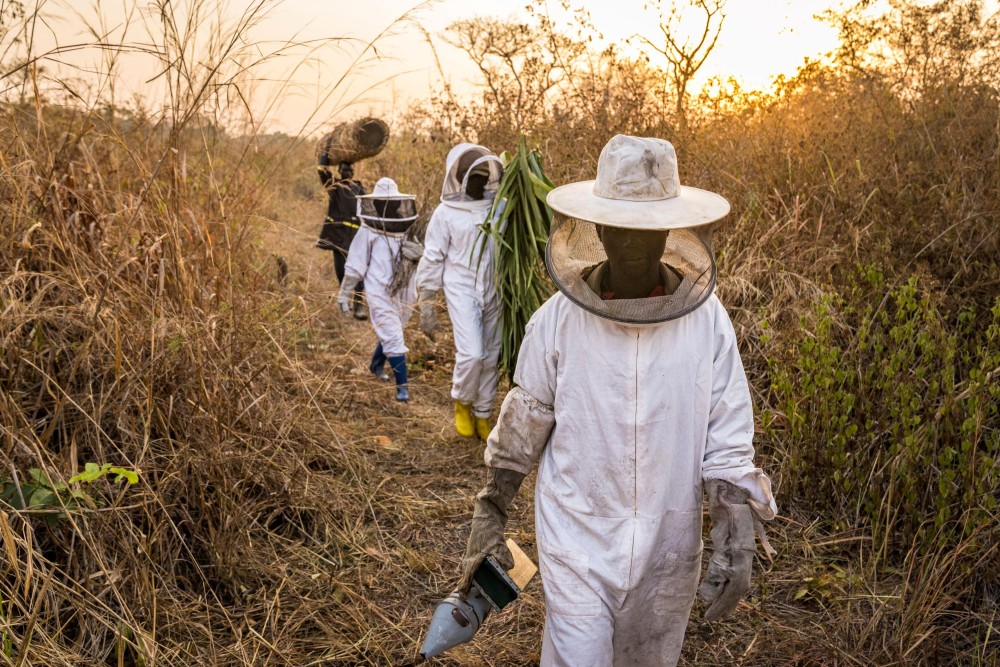Community engagement and development is central to the long-term sustainability of Garamba National Park, with a key focus on education, healthcare and alternative livelihoods for the approximately 100,000 people living around the park.
Community Engagement
Several dedicated community personnel have been recruited and trained to work directly with surrounding communities on a variety of community projects and environmental awareness programmes. Camp Dungu, established to support these, hosted over 1,400 people in 2022, of which more than half were under 15 years old. In total, over 11,700 community members were engaged in awareness-raising sessions run by the park.
Education and Environmental Awareness

Environmental education in local community schools has been successful, with thousands of schoolchildren and their teachers learning about conservation through guided park visits, school lessons, brochures and films. A primary school was built in Gangala-na-Bodio village and a school building in Nagero rehabilitated in 2022, providing a better learning environment to over 1,000 pupils.
Sustainable Enterprise Development
We are constantly working with local communities to identify alternative sources of income, to encourage less dependency on the park's limited resources and provide local people with the potential for a sustainable future. A number of initiatives have been put in place. For example, in 2022, 572 farmers (33% of which are women) completed their two-year training course through the Farmer Field Schools (FFS) programme designed to train farmers in sustainable agriculture methods. Aside from the adult farmers, over 950 pupils were trained through junior FFSs, in partnership with 30 primary schools, on sustainable agriculture crops and market gardening.
Cacao and papaya fields have been developed outside the park under an MoU with the private company ENVIRIUM. Eighty-six fishponds have been initiated and brought into operation, producing 1.45 tonnes of tilapia, increasing the availability of protein for the community. In total, 174 beehives around the park produce honey which bee farmers sell locally. Garamba currently employs over 500 full-time and 2,000 short-term local staff.
Community Infrastructure Development

Infrastructure projects have gone a long way in improving community access to essential services, such as the construction of Nagero Hospital just outside the park in 2013, which now provides medical healthcare to nearly 10,000 people a year. Alongside this initiative, the procurement of medical supplies and equipment has meant hospital staff can perform surgeries and laboratory tests on-site. The mobile clinic team visited 20 remote villages within the Garamba Complex in 2022, reaching more than 3,000 community members.
The two solar mini-grids in Faradje and Tadu supply electricity 24 hours a day to 379 subscribers, 30% of whom are small- and medium-sized enterprises. A third mini-grid for Dungu town has been finalised and is expected to bring electricity to 772 users by the end of 2023.
